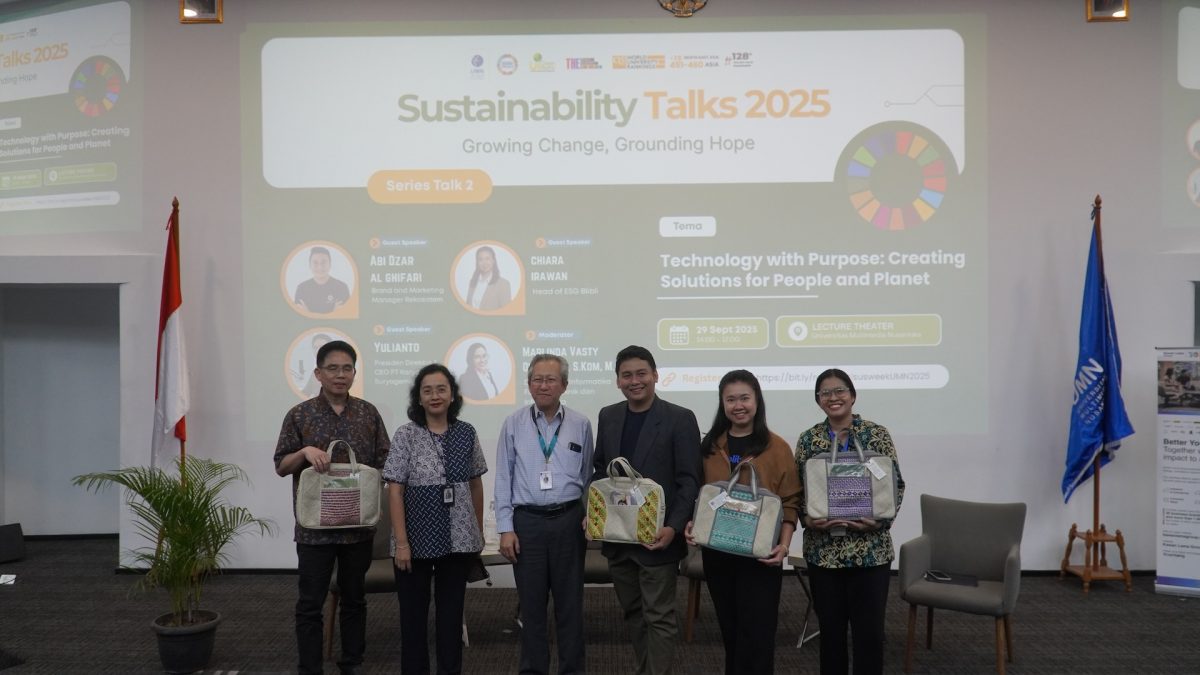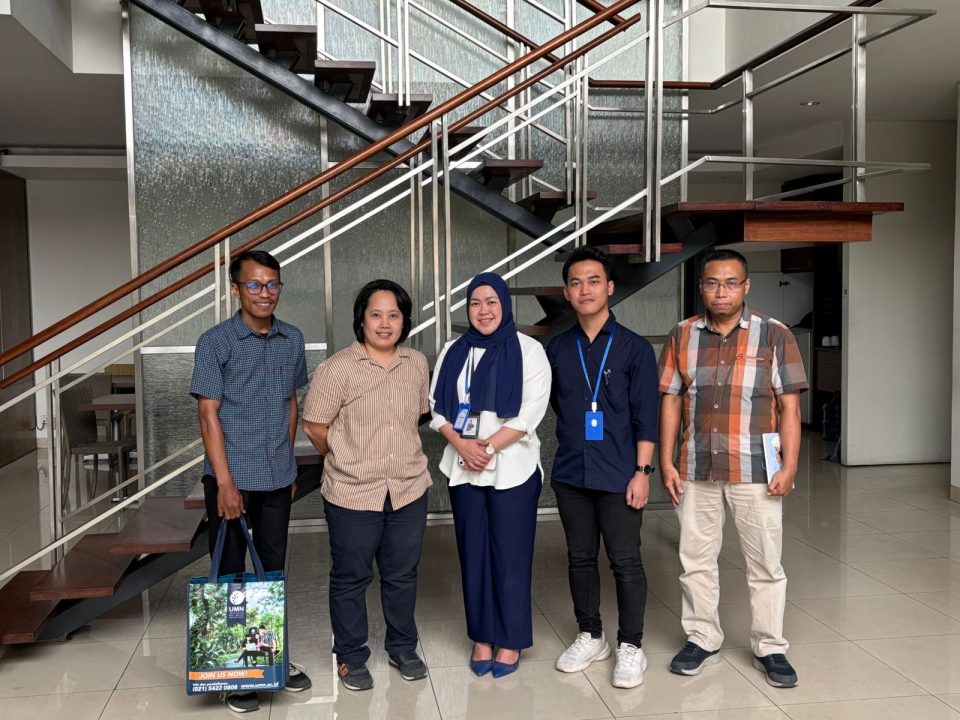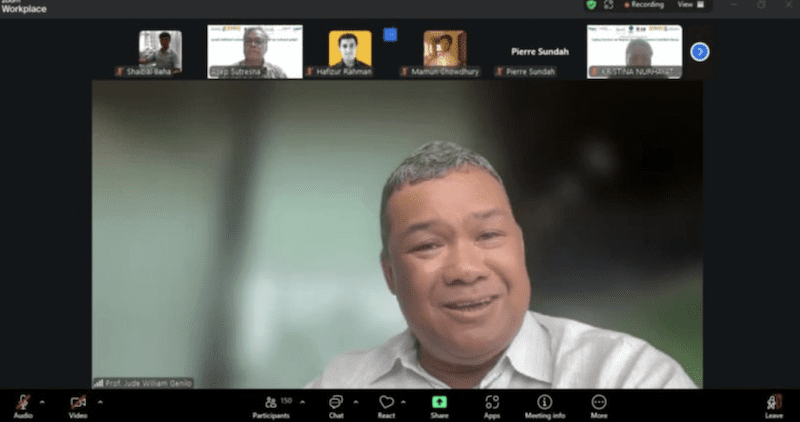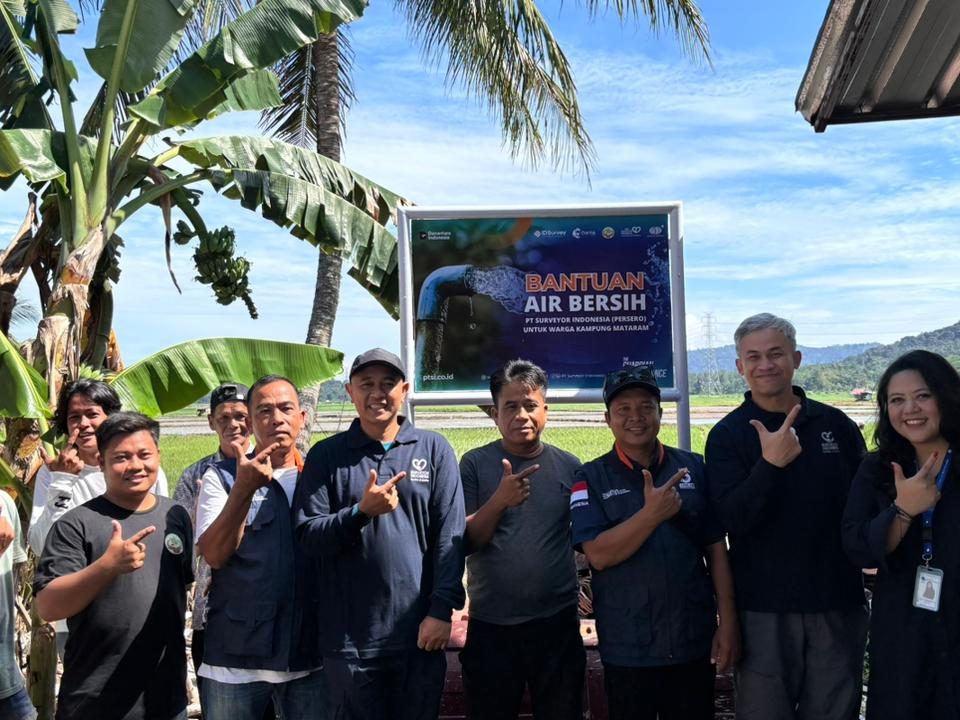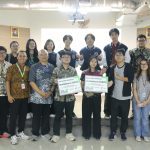
UMN Students Win EMC Business Pitching Competition, Secure Trip to Japan with Musashino University
September 29, 2025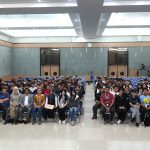
UMN Engineering and Informatics Faculty Guest Lecture Highlights the Role of Research and Innovation in Digital Transformation
September 30, 2025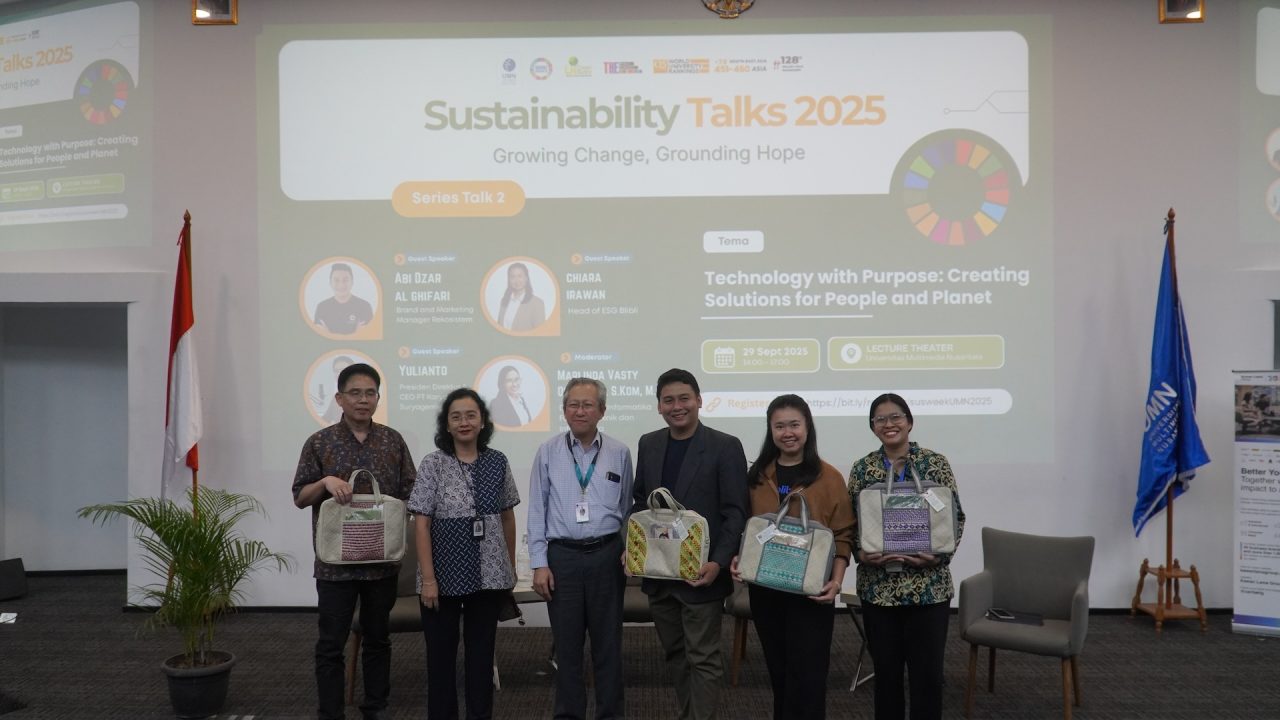
Group photo of the UMN rectorate with speakers and the moderator. (Doc. UMN)
Tangerang—On Monday (09/29/2025), the Universitas Multimedia Nusantara Sustainability Center held a Sustainability Talk involving four faculties at UMN, including the Faculty of Engineering and Informatics. This Sustainability Talk invited three speakers from three industries: Blibli, Rekosistem, and KPMG. It was moderated by Marlinda Vasty Overbeek, S.Kom., M.Kom., a lecturer in the Informatics Study Program. This Sustainability Talk explored how technology can support and be part of sustainability.
With the rapid development of technology, many people are concerned that technology will replace them. As we know, the latest technology today is Artificial Intelligence (AI), which has sparked pros and cons among the public. However, this UMN Sustainability Talk explored how AI technology plays a role in helping humans rather than replacing them.
“Blibli has many scoops, which gives us a big responsibility. At our company, we are known for Bliblik Ticker Action, where you want to have actions and initiatives that have an impact and invite others to collaborate on the three main pillars of our company, namely Environment, Society, and Governance (ESG),” Chiara Irawan, Head of ESG Blibli, said.
Chiara explained Blibli Ticket Action’s various focuses, which include Data and Privacy, Waste, Emissions, Community Relations, and Resource Use. This is a form of Blibli’s commitment to maintaining the trust of its stakeholders while also positively impacting its three main pillars.
“Blibli’s initiative is to use AI technology in our work, such as packaging. We use AI to predict the right packaging size to reduce waste and lower packaging costs by up to 20%. This AI is not used to replace human work, but to maximize work, and AI has also been proven to support sustainability,” Chiara added.
Chiara also emphasized various programs by Blibli to support sustainability in the online industry, such as delivery using electric vehicles, trade-ins of unused items, waste recycling, and, most importantly, collaboration with various parties to support sustainability. The Sustainability Talk was continued by the second speaker, Abi Dzar Al Ghifari, Brand and Marketing Manager of Rekosistem, who also discussed how technology can contribute to the planet and society.
“Indonesia produces 65 million tons of waste every year. Not all of this waste goes to landfills; some is burned, and some ends up in the sea. Of course, this impacts ourselves, causing water pollution, air pollution, and various other problems. This is still very prevalent in Indonesia, which is why Rekosistem has innovated sustainable waste management technology,” Abi explained.
Abi also explained the advantages and concept of Rekosistem, which is divided into two categories: Green Troop for new users and Reward Hunter for active users. With Rekosistem, users can earn Rekopoints from sorting organic and inorganic waste.
“Rekosistem not only raises public awareness about waste stations and waste sorting but also motivates many people to continue contributing to sustainability. Of course, all user activities prioritize data security and transparency, so users don’t need to worry,” Abi added.
Abi also advised students to stay relevant to current global issues and to start sustainability through coursework, research, or final projects. This is so that students can work together to promote a prosperous and sustainable environment. The event continued with the final speaker, Yulianto, President, Director, and CEO of PT Karyaputra Suryagemilang.
“KPMG is a local product focused on solutions for interacting with customers. Due to the massive growth of digital technology, KPMG is focused on advancing AI technology, which is now rapidly developing and spreading everywhere. Chat GPT, Gemini, and other OpenAI technologies are still not fully understood by many people, but new levels are already emerging,” Yulianto explained.
According to Yulianto, technological advances can accelerate progress but hinder it, which is humanity’s challenge. Yulianto also agrees that machines will replace some jobs, but many jobs still require a human touch.
“What AI lacks is human empathy. If there are complaints, feedback, or criticism, AI does not have the same empathy as humans. AI can only replace repetitive and simple tasks. So AI is here to help humans with their work,” Yulianto added.
Yulianto also explained how KPMG is here to support Indonesian technology, particularly in healthcare, education, agriculture, and customer experience. This is to provide effectiveness and efficiency for its clients, so we must prepare solutions that Indonesia will need in the future.
By Rachel Tiffany | UMN News Service
English translation by Levina Chrestella Theodora
Kuliah di Jakarta untuk jurusan program studi Informatika| Sistem Informasi | Teknik Komputer | Teknik Elektro | Teknik Fisika | Akuntansi | Manajemen| Komunikasi Strategis | Jurnalistik | Desain Komunikasi Visual | Film dan Animasi | Arsitektur | D3 Perhotelan , di Universitas Multimedia Nusantara.

